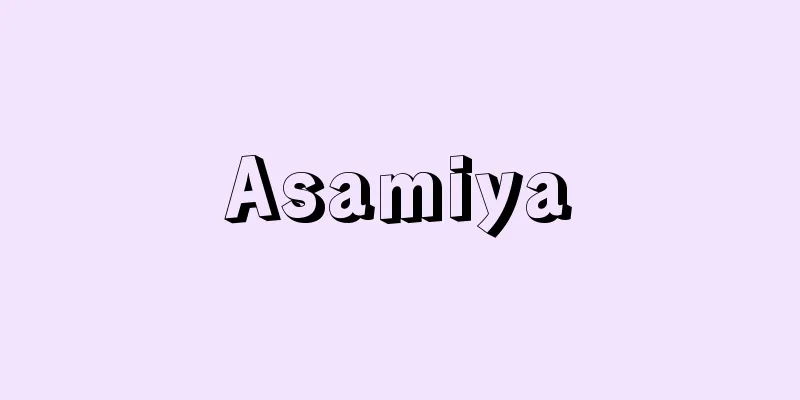Sunny Tree

|
〘Noun〙① The tree that has male flowers in a dioecious plant. Male tree (ogi) . ⇔Shade tree. ② Woody plants that require direct sunlight for seedlings to grow. Trees such as birch, alder, and willow cannot grow even if their seeds germinate inside the forest. ⇔Shade tree. [Additional note] The "Nippo Jisho" says "Inju (インジュ) yǒsu (ヤウス) ari," but is yǒsu a mistake for yǒju? Source: The Selected Edition of the Japanese Language Dictionary About the Selected Edition of the Japanese Language Dictionary Information |
|
〘名〙① 雌雄異株の植物で、雄花を持っているほうの木。男木(おぎ)。⇔陰樹。② 苗の生長に、直射日光の受容を必要とする木本のこと。森林内部では種子が発芽しても生育できないシラカバ、ハンノキ、ヤナギなど。⇔陰樹。[補注]「日葡辞書」に「Inju(インジュ) yǒsu(ヤウス) アリ」とあるが、yǒsu は yǒju の誤りか。
出典 精選版 日本国語大辞典精選版 日本国語大辞典について 情報 |
Recommend
Orthoboric Acid
H 3 BO 3 (mw 61.83). Boiling point 169°C. A weak a...
Quanzhou - Senshu
A prefecture-level city in central Fujian Provinc...
window seat
…In the second half of the 17th century, a backle...
Didiciea japonica (English spelling) Didicieajaponica
… The Tipularia genus is characterized by a serie...
Al-Māzinī, Ibrāhīm `Abd al-Qādir
Born: 1890. Cairo Died in 1949. Modern Egyptian wr...
Battle of Goryokaku
Also known as the Hakodate War. This was the last ...
Criminal Procedure Rules
Supreme Court Rules No. 32 of 1948. As one of the ...
cushionmum
…Chrysanthemums for potted plants are widely cult...
Turkic language - Tokketugo (English spelling)
One of the ancient Turkic languages. Also known as...
Price theory
A branch of economics that seeks to clarify the pr...
Photisarath
...After that, political and cultural contacts wi...
Death feigned rebirth
Please see the page "Death and Rebirth"...
Alpha waves - Alpha is
This is one of the waveforms of brain waves. It is...
potloot
…The next time they were introduced was at the en...
9.18 Suspension Order - 9.18 Suspension Order
...The government had already begun to control th...









